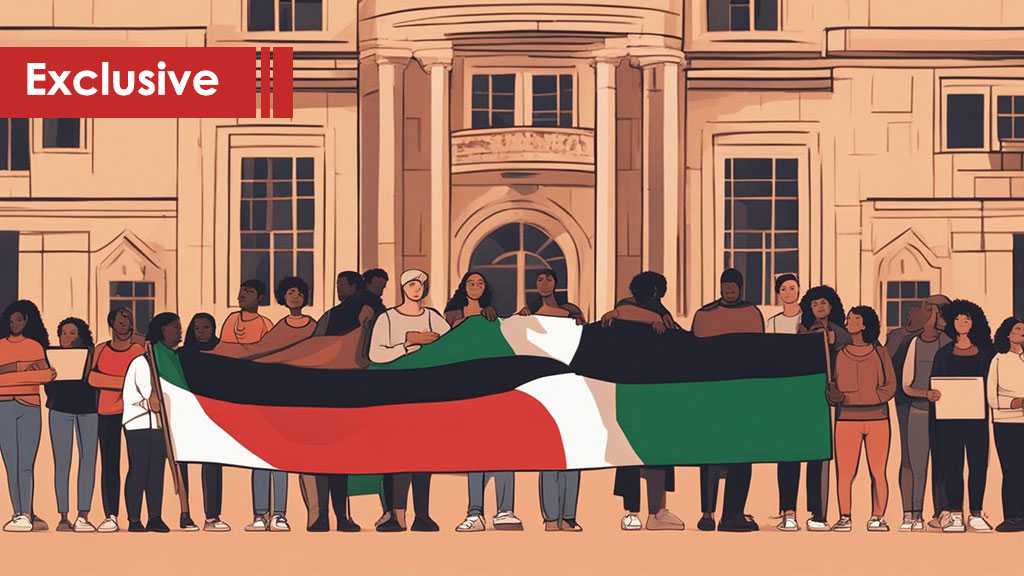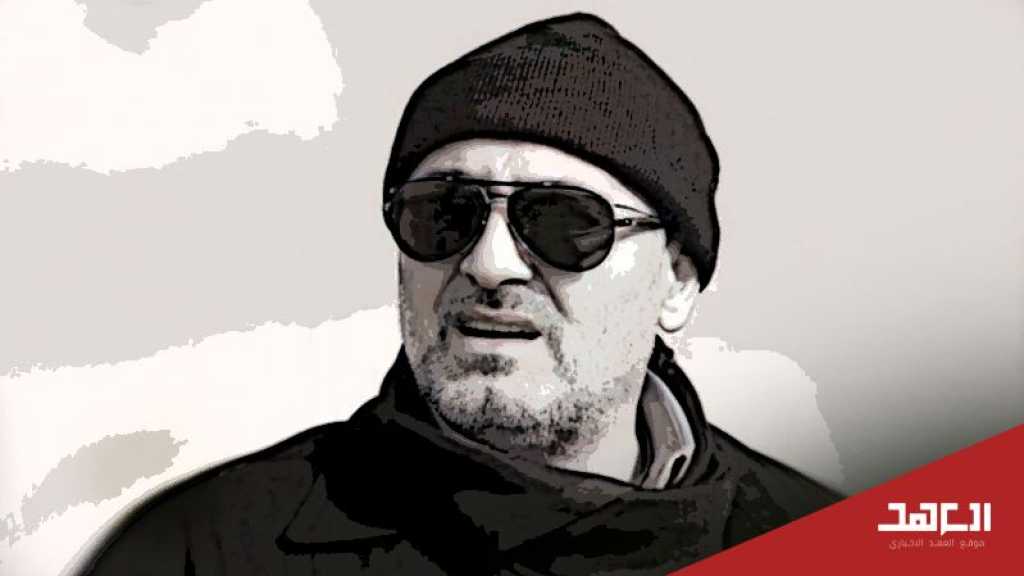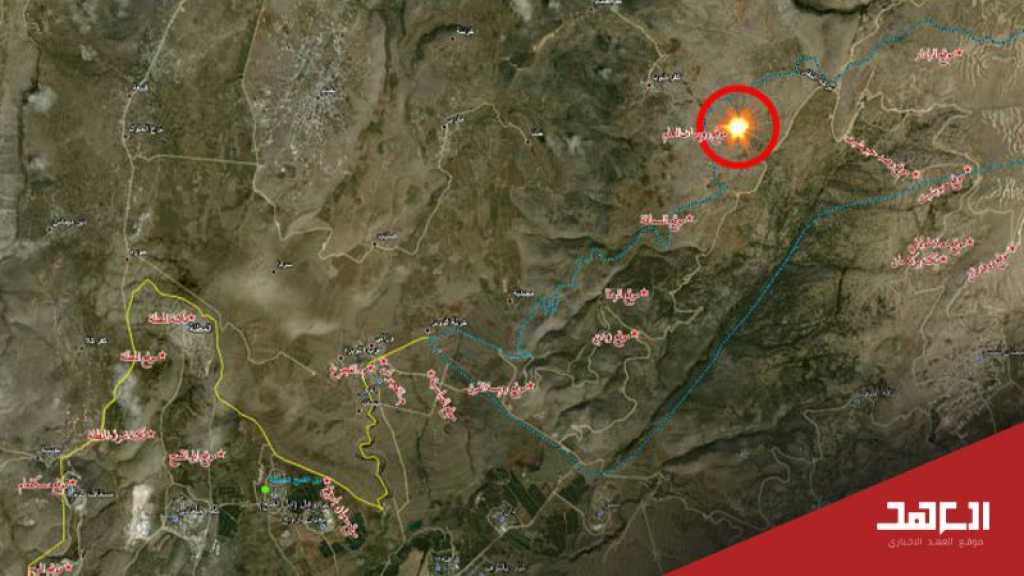
Revealing the Janus Face of the West: Cultural Divestment Protests in the Shadow of Gaza’s Tragedy

By Fatima Haydar
Beirut – In recent years, American universities have transformed into arenas of moral reckoning, where students and faculty alike wield their voices against the cacophony of injustice echoing through the corridors of power. Among these impassioned cries, the call for cultural divestment has emerged as a potent sword, unsheathed to challenge the Western establishment's complicity in perpetuating human rights violations, particularly in the harrowing landscape of Palestine and the ongoing tragedy of Gaza. These protests have not merely sought accountability for the enablers of “Israeli” apartheid; they have cast an unflinching spotlight upon the cavernous depths of double standards woven into the fabric of Western culture.
The cultural divestment movement at American universities, a phoenix rising from the ashes of colonialism and imperialism, seeks to shatter the shackles of complicity that bind cultural institutions to narratives of oppression. It beckons for a divestment from the merchants of injustice, those who peddle in the artifacts and spectacles that glorify conquest and erasure, leaving the marginalized to wither in the shadows of historical amnesia, including the resilient people of Palestine.
At the heart of these protests beats a discordant rhythm, a jarring cacophony that reverberates against the hallowed walls of Western hypocrisy. Amidst the grandiose proclamations of equality, justice and human rights, lies the stark reality of complicity in the oppression of the Palestinian people. While Western governments and institutions profess to uphold these noble ideals, their actions betray a callous indifference to the plight of the Palestinian people, relegating them to the periphery of moral conscience.
A glaring example of this dissonance is the contrasting treatment of conflicts by the Western establishment. Consider the swift condemnation and punitive measures unleashed upon Russia for its annexation of Crimea and escalation of tensions in eastern Ukraine, juxtaposed against the muted response to the “Israeli” entity’s relentless assault on Gaza, leaving behind a trail of shattered lives and shattered dreams. The selective application of principles such as democracy, human rights and international law lays bare the festering wound of double standards within Western corridors of power.
Furthermore, the deafening silence surrounding the Palestinian narrative in Western cultural institutions serves as a damning indictment of institutionalized erasure and silencing. While "Israeli" perspectives are lauded and lionized, Palestinian voices are relegated to the margins, deemed unworthy of the pedestals upon which their oppressors perch. Museums, galleries and cultural events perpetuate a narrative of “Israeli” exceptionalism, erasing the lived experiences of Palestinians and perpetuating myths that justify their subjugation.
The response of university administrations to cultural divestment protests further underscores the hypocrisy within Western culture. Despite claims of support for diversity and inclusivity, many institutions have chosen to silence dissenting voices, prioritizing political expediency over principles of justice and human rights. This betrayal of fundamental values serves as a chilling reminder of the depths to which Western institutions will sink to protect their vested interests.
None the less, the complicity of Western governments in enabling “Israeli” apartheid through military aid, diplomatic support and trade agreements underscores the depth of the double standards at play. Despite countless UN resolutions condemning “Israeli” actions and affirming Palestinian rights, Western powers have consistently shielded the “Israeli” entity from accountability, perpetuating a cycle of violence and impunity.
American universities including Columbia University, New York University [NYU], the University of Southern California [USC], the University of Michigan and Harvard University, among others have witnessed significant pro-Palestinian protests, with student groups calling for divestment from companies involved in arms deals with the apartheid “Israeli” entity.
The targeted companies typically include major defense contractors such as Boeing, Lockheed Martin, Northrop Grumman and Raytheon. These companies are criticized for their role in supplying military equipment to the “Israeli” entity, which protesters argue contributes to the conflict and human rights abuses against Palestinians.
At Columbia University, protests have been particularly intense, with students setting up a “Gaza Solidarity Encampment” and calling for the university to divest from companies tied to the “Israeli” military. Similar protests have taken place at NYU, leading to numerous arrests and significant media coverage.
Protesters are calling on their institutions to divest endowment investments from companies tied to the “Israeli”-Palestinian conflict. But what are endowments?
Endowments are critical financial resources for universities, funded primarily through donations and managed for long-term financial sustainability. These funds support teaching, research, scholarships and other institutional priorities. Managed by external investment firms, endowments are typically diversified across various asset classes, including index funds, hedge funds and mutual funds. This diversification is intended to maximize returns while managing risk.
As of the 2023 fiscal year, a survey by the National Association of College and University Business Officers [NACUBO] reported that 688 participating colleges and universities collectively held $839.1 billion in their endowments?. These funds vary significantly in size, with some institutions possessing particularly large endowments: Harvard University: $50.7 billion and Columbia University: $13.64 billion?.
In conclusion, the cultural divestment protests at American universities have ripped apart the veil of Western culture's double standards regarding Palestine and the Gaza genocide. They stand as a testament to the unyielding spirit of resistance, a clarion call for justice in the face of tyranny. As the movement continues to gather momentum, it is imperative that we confront these double standards head-on, forging a future where all voices are heard, and all peoples are treated with dignity and respect, regardless of their nationality or ethnicity.
Last but not least, the Western establishment, led by the US, pays lip service to the ideals of free speech and democratic values, yet it reserves the right to redefine them at a moment's notice to serve its own interests. As we navigate the turbulent waters of activism and advocacy, let us remain steadfast in our pursuit of truth and justice, holding those in power accountable for their actions and inconsistencies.
Noam Chomsky, a prominent intellectual and critic of US foreign policy, addresses this very issue with incisive clarity. He states, “The smart way to keep people passive and obedient is to strictly limit the spectrum of acceptable opinion, but allow very lively debate within that spectrum—even encourage the more critical and dissident views. That gives people the sense that there's free thinking going on, while all the time the presuppositions of the system are being reinforced by the limits put on the range of the debate."
This quote succinctly captures the paradox within “democratic” societies where, despite the appearance of free discourse, underlying mechanisms of control serve to maintain the status quo. Chomsky's observation is a poignant reminder that the advocacy for genuine free speech and democratic values must go beyond surface-level debates. We must challenge the deeper structural manipulations that restrict true freedom and justice. By remaining vigilant and critical, we can ensure that the principles of democracy are not merely rhetorical tools used to placate dissent but are robustly upheld in practice, thus holding those in power accountable for their actions and inconsistencies.


